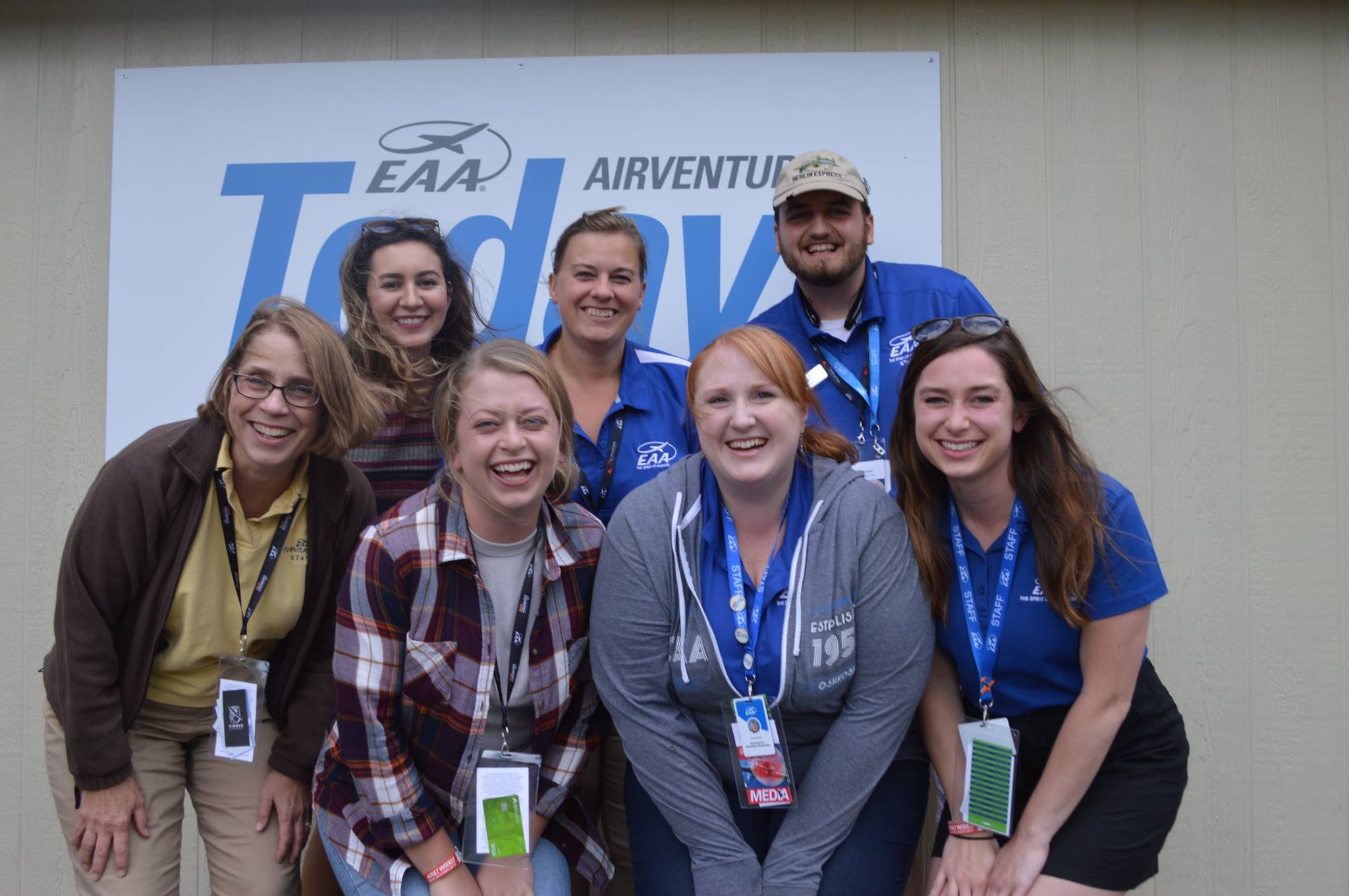About Us
Follow Us:About Us
The truth – the facts of the story to the “most powerful element in advertising” – is what students learn to discover, report and share in the Department of Journalism. This tradition started with our founding in 1968 to train news reporters, later to include public relations and advertising professionals. Our program continues to evolve an academic and professional curriculum through programs in multimedia journalism, public relations and advertising. High-quality learning pairs with active student life in our department – clubs, internships, professional experiences and networking opportunities – to create a vibrant community.
Nationally Accredited
The Department of Journalism is accredited through the Accrediting Council on Education in Journalism and Mass Communication. This national accreditation helps ensure the quality of our program and faculty, and also supports smaller-sized classes for writing, visual and applied skills development. Students see ACEJMC values and competencies in every course syllabus.
Modern Curriculum
Three programs are offered in the department, each providing core writing and visual communication skills with opportunities for advanced courses that provide academic and professional training specific to the field. All of our students are versed in AP Style, as well as theory and practice in their area of study. Keeping curriculum modern for the industry is central to our approach. Our multimedia journalism major was revamped in 2018, and our public relations major was the first of its kind in UW System.
- Multimedia Journalism (major or minor) – Courses focus on media writing and visual communication, plus reporting and visual media design, along with advanced special topics coverage experiences such as in sports, politics and digital technology. These majors work in the media covering the news, as well as in roles for content creation for corporations to nonprofits. Students often intern at local organizations or work for the Advance-Titan.
- Public Relations (major or minor) – This program includes writing, visual and digital skills, with advanced courses in new and emerging media; research in strategic communication; campaigns; and projects for local organizations. Public relations majors work in corporations, agencies and other organizations to build relationships online and in-person with the media, consumers, employees and other target audiences.
- Advertising (major or minor) – Creative skills in this program center on designing advertising strategy, copywriting, visuals and media plans. Advanced courses in design, media planning, research and campaigns leverage the latest in digital, experiential and traditional advertising methods. These majors work in agencies, corporations or nonprofits in the Fox Valley and nationally.
Internship, Real projects and Competition
The department encourages students have multiple professional experiences, including:
- Internships – About 90% of students have one more internships before graduation, with the help of our internship coordinator, Barb Benish.
- Real Projects – Each year, students work in class projects with a dozen local organizations, providing real-world experiences and resume-building work samples.
- Competitions – Students in all of our programs may participate in national competitions including the Hearst Journalism Awards Program, Bateman, National Organ Donor Awareness Campaign and National Student Advertising Competition.
.

Barb Benish
Student Community and Resources
Students may join clubs to advance their skills and experience, and meet other students with similar interests. The department’s clubs include: The Advance-Titan Newspaper, Advertising Club, Kappa Tau Alpha Honor Society, Photo Club, Public Relations Student Society of America (PRSSA) and Society of Professional Journalists. The department offers 10 scholarships for student expenses and travel.

Commitment to Freedom of Expression and Diversity
The department is strongly committed to advancement of literacy, freedom of expression, journalism education and diversity and inclusivity. The faculty meet each year to review diversity in the classroom as aligned with the department’s Diversity and Inclusivity Policy, “The department is committed to diversity and inclusivity in its student population and faculty and to the creation of a learning environment that exposes students to a broad spectrum of voices and views… race, class, gender, generation and geography are key forces shaping our society and need to be recognized more explicitly in the classroom.”
“The classes puts students in real life experiences with real clients to show what it’s like in the work force. Classes can be challenging but worth it in the end when you see your final product!”
